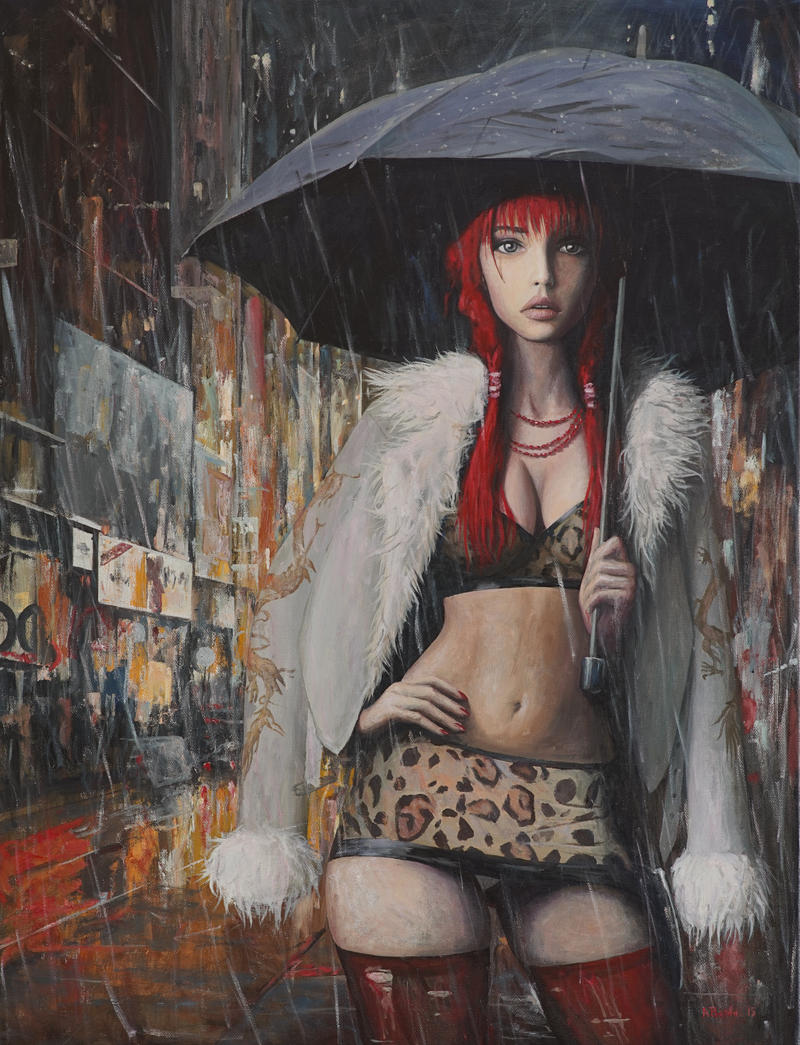
I think prostitution is a private business transaction, and should not be considered in other terms. The prostitute (male or female) is free to enter into contracts. The claim that it is merely an exploitative service where the client is interested only in the prostitute’s services, not them personally is tantamount to the claim that the client seeks only the services of a professional (lawyer, doctor, professor) and not them personally. The prostitute is not a victim, nor a wage laborer – the contract is with a client, not an employer.
We must fight off the paternalistic (as well as chauvinist) urge to consider women as powerless victims and the dependent in male-female relationships. Once this happens then its easier to understand prostitution under different terms than conventional mores of society and judgmental ones of morality.
Prostitution actually emphasizes women’s liberation from their dependency of men, and their empowerment. The ideals of equality and freedom between sexes are worth pursuing, indeed, but while they are not a reality, then prostitution instead grants women liberation in immediacy, affirmation and temporally rewarding.
Simone de Beauvior claims all women have the ability to realize their “feminine warrior spirit,” for their power over men is not illusory. Men typically think they’re in charge of the situation if they subdue and degrade the woman, but with a competent woman of spirit, this may only be illusory.
Carole Pateman said that “the man may think he ‘has’ her but his sexual possession is an illusion; it is she who has him… she is not being ‘taken,’ cuz she is being paid…”
The typical Marxist decries prostitution as exploitative and oppressive because all employment necessarily are oppressive and exploitative. The typical moralist condemns the profession and blames the working girls for allowing themselves to fall so low.
However, the prostitute is not a fallen woman, a victim of society, for she is already the “qunitessentially liberated woman.” I agree that women may be oppressed by the inequality between the sexes, de Beauvior claims there is an escape from this oppression by economic means. While most may consider the prostitute a victim, oppressed, I see her as a liberated woman who used a successful economic strategy for her livelihood.
This is how Monsieur Mauclair analyzed men’s attitude toward prostitutes:
“Neither the love of a passionate but well-brought-up mistress, nor his marriage to a woman whom he respects, can replace the prostitute for the human animal in those perverse moments when he covets the pleasure of debasing himself without affecting his social prestige. Nothing can replace this bizarre and powerful pleasure of being able to say everything, do everything, profane and parody without any fear of retribution, remorse, or responsibility. It is a complete revolt against organized society, his organized, educated self and especially his religion.” (Love and the French, by Nina Epton)
Monsieur Mauclair hears the call of the Devil in this dark passion poetized by Baudelaire. “The prostitute represents the unconscious which enables us to put aside our responsibilities.”